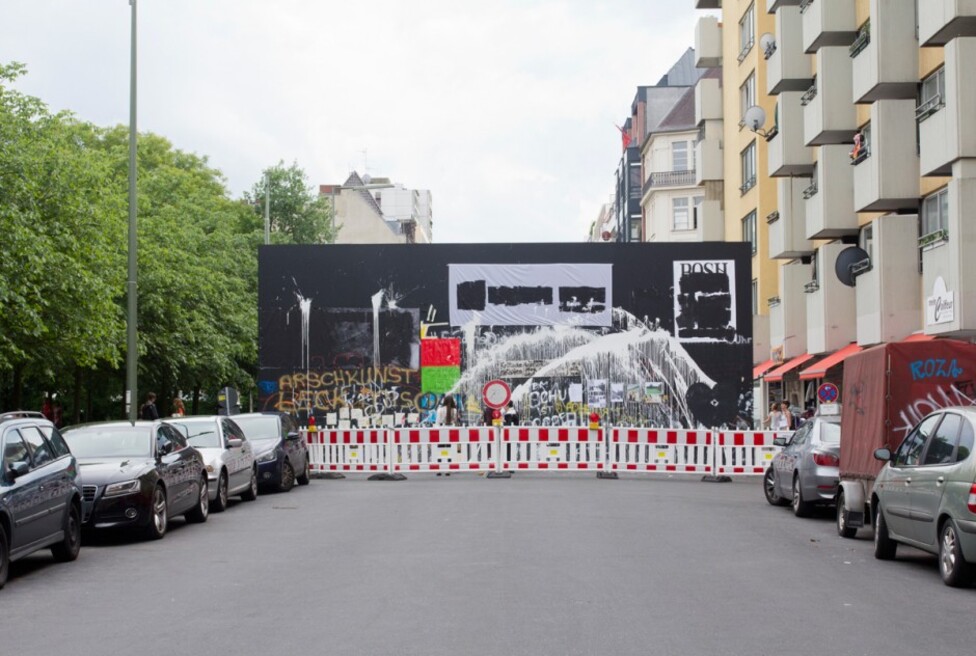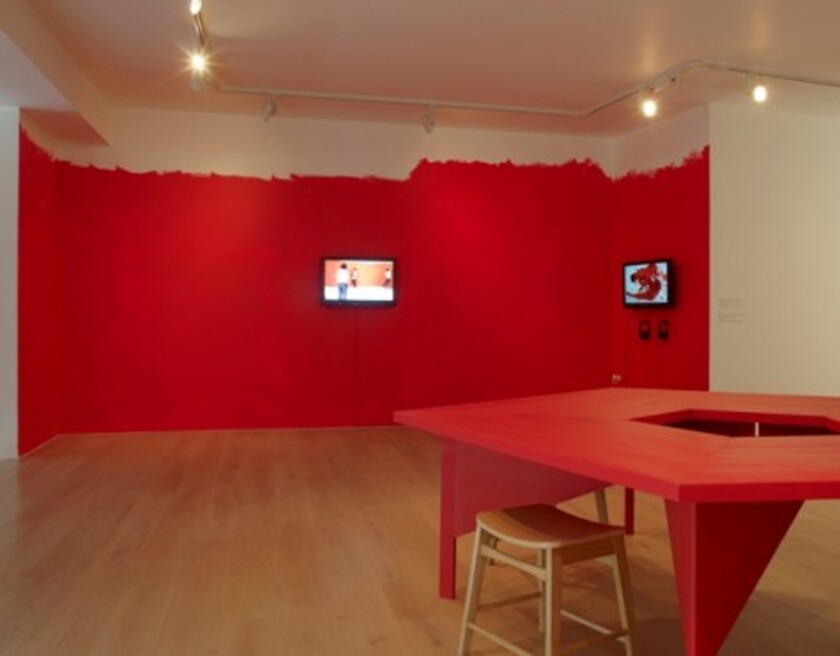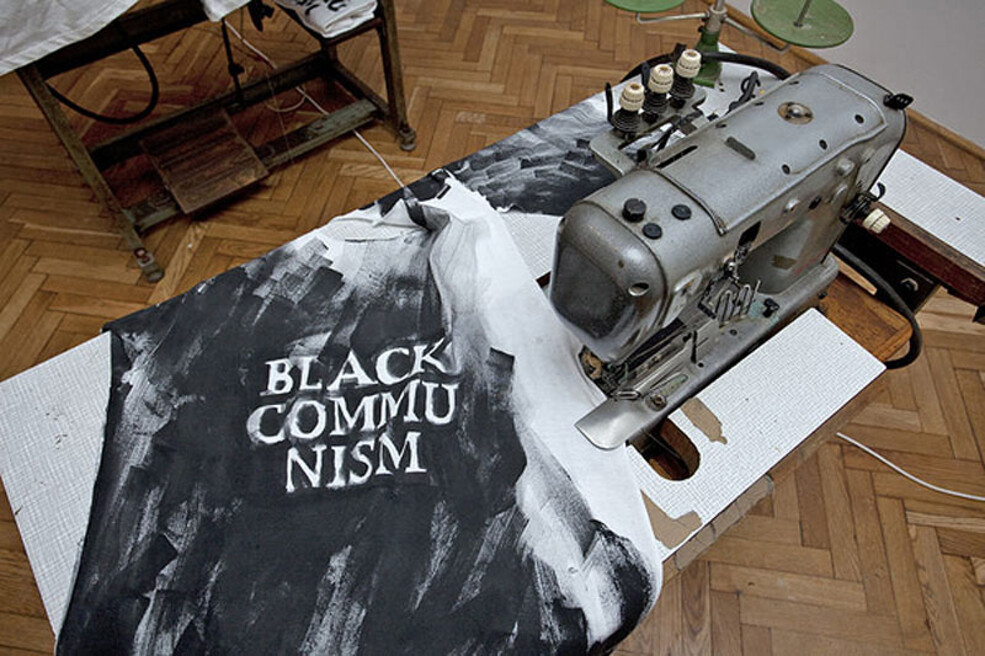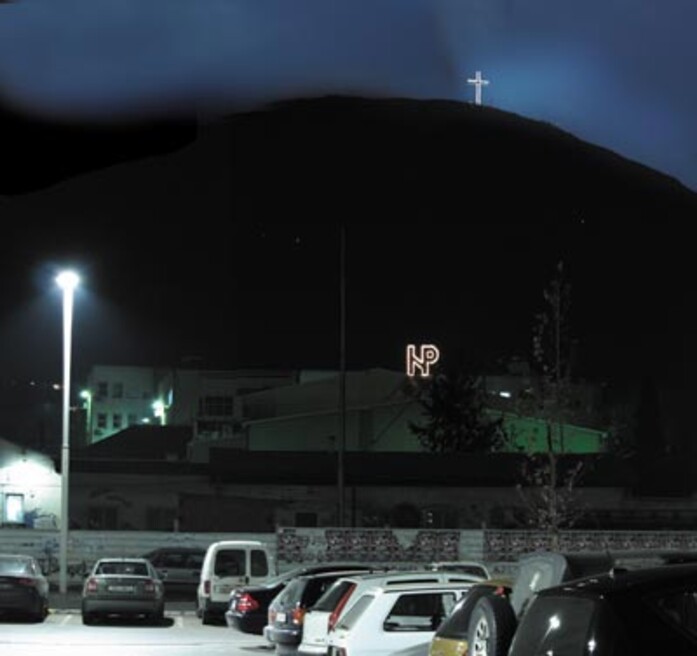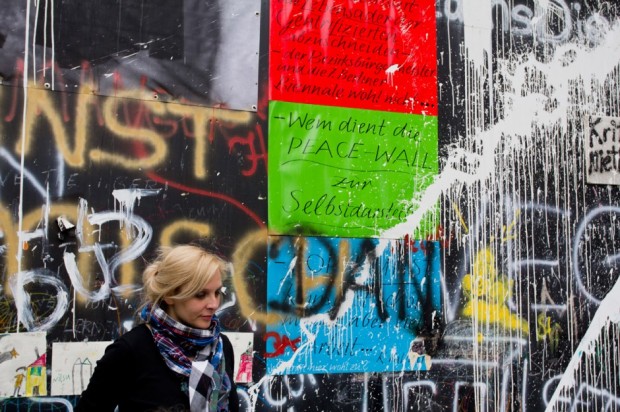Nada Prlja
Bereich: Bildende Kunst, Medienkunst
Key Facts
Nationalität
MazedonienBereich
Bildende Kunst, MedienkunstWohnort
SkopjeEmpfehlende Institution
frei_raum Q21 exhibition spaceZeitraum
November 2016 - November 2016Born in Sarajevo, Bosnia and Hercegovina. Lived in Skopje, Macedonia 1981-1999. Since 1998 lives and works in London, UK and since 2014, between London and Skopje, Macedonia. She received an MPhil research degree from the Royal College of Arts, London, after graduating from the Academy of Fine Arts in Skopje, Macedonia (and previously from the National High School of Fine Art in Skopje).
Prlja has taken part in the following Biennales: IV Bienal del Fin del Mundo de Arte Contemporáneo, Chile/ Argentina (2015); 5th Moscow Biennale, (Film Program) Moscow (2013); 7th Berlin Biennale, Berlin (2012), Manifesta 8, Murcia (2010) and the International Printmaking Biennale, Ljubljana (2009). Her work often engages with the public domain; her recent public interventions were for the 7th Berlin Biennale (2012), ORF FUNKHAUS, Vienna (2009), Marble Arch Gate, London (2007), etc.
Selected solo exhibitions: FUTURA, Prague (2013); Lakeside Kunstraum, Klagenfurt (2010), MC Gallery, Zagreb (2009), The Museum of the City, Vzigalica, Ljubljana (2009), Museum of Contemporary Art, Skopje (2008), National Gallery of Macedonia, Skopje (2007), etc.
Selected group exhibitions: National Gallery of Macedonia (2015); White Cube, London (2014); Calvert 22 Foundation, London (2013); Palais de Tokyo, Paris (2012); Lewis Glucksman Gallery, Cork (2012); Szuki Museum, Lodz (2011), INIVA Institute of International Art, London (2009), David Roberts Art Foundation, London (2009), Skuc Gallery/ Ljubljana Biennale, Ljubljana (2009), Tina B - Prague Contemporary Art Festival, Prague (2008), Hong-Gah National Museum, Taipei (2008), Zacheta National Gallery of Art, Warsaw (2008), etc.
Selected public presentations: Nottingham Contemporary, Nottingham; ICA, London; INIVA Institute of International Art, London; Tate Britain; University College of London (UCL), London; University of Aberdeen, Aberdeen; Goldsmith University, London, etc.
Prlja was senior tutor in several London universities from 2005 to 2013 (Istituto Marangoni, London Metropolitan Universty, etc.). Prlja is co-director and initiator of Serious Interests Agency, independent gallery and project space in Skopje, since 2014.
In 2013, Jon Henley wrote for the Guardian: ’So why build new walls – especially when, as history shows, the old ones rarely did what they set out to do?’ Reading this statement, within two days of the arrival of Sebastian Kurz (Austria's Foreign Minister) to Macedonia, Henley’s statements of only two-three years ago, already sound outdated. By contrast, Sebastian Kurz recently stated (in February 2016), that the EU and the Western Balkans have to act in union, to prevent the uncontrolled influx of economic migrants’.
’Peace Wall’ (2012), is a public art project of mine, consisting of a wall barrier, that stood on Berlin’s Friedrichstraße, dividing the street and blocking the local traffic for two months- as part of the 7th Berlin Biennial. The project received praise but also criticism, at the time of its installation, mainly due to the symbolism related to the ‚wall’ itself. The public saw the wall as a symbol of xenophobia, enforced borders, enclosure and division - all seen as irrelevant within contemporary society, and especially Europe, which symbolizes openness and democracy.
Yet now, the ‚Peace Wall’ art project can be considered as a precursor of our bitter present reality. ’Peace Wall’ was symbolically (and somewhat naively) installed in this particular part of Friedrichstraße in Berlin, to point out the economical divisions within modern cities and contemporary society.
Today, Macedonia has started constructing a double layered barbed-wire fence to deter people from entering the country illegally via Greece, in other words‚ preventing the influx of economic migrants’ (Kurz). Today, Hungarian Prime Minister Viktor Orban called for a "European defense line" on Greece's border with Turkey, and Polish Prime Minister Beata Szydlo urged for increased security on the external EU frontier. Today, most countries call on measures, that only few months ago, would have been seen as questionable, awkward and backward.
With this residence, I intend to analyze, both theoretically and creatively, the reasoning behind the building of the various ’safeguarding’ barriers in present-day Europe.
